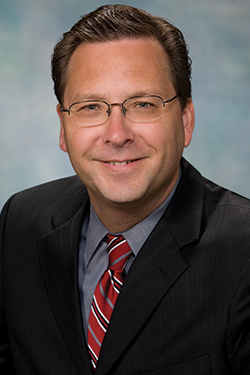
Education, income and health are the building blocks of a safe and stable life, but for many individuals and families in central Illinois, these fundamentals are out of reach. By supporting programs that promote financial stability and independent living, the Heart of Illinois United Way is helping people find safe, affordable housing while gaining important life skills that improve self-sufficiency.
For decades, United Way partner agencies have provided services for individuals who are homeless. The Heart of Illinois United Way is a primary partner in the Heart of Illinois Homeless Continuum of Care (HOIHCOC), a coalition of community providers supported by the U.S. Department of Housing and Urban Development (HUD) and responsible for coordinating housing and services for people experiencing homelessness. In July 2016, the Heart of Illinois United Way assumed administrative responsibilities for the HOIHCOC, whose goal is to end homelessness in Fulton, Peoria, Tazewell and Woodford counties.
Governed by a local volunteer board, the HOIHCOC is focused on ensuring access to permanent, safe and affordable housing. With comprehensive, coordinated services, these programs help individuals and families achieve self-sufficiency in an environment designed to meet their needs.
This past summer, due to a realignment of grant priorities at HUD, The Salvation Army lost its federal funding for the Peoria Family Services Day Drop-In Center in downtown Peoria. The Day Drop-In Center provides an indoor facility with access to meals, showers, storage, mail service and case management seven days a week. As the winter months approach, the need for this program has become a community-wide priority.
The Heart of Illinois United Way Board of Directors led the charge to restore funding for this vital program by providing $25,000 in funding and collaborating with the City of Peoria and Peoria County, each of which are providing $63,860. During the next year, discussions will continue with various stakeholders to develop the best strategy to decrease the length of time people experience homelessness in our community.
By bringing people and organizations together across private, nonprofit and governmental sectors to address community needs such as homelessness, United Way holds a unique position in the local health and human service sector—the role of facilitator. In 2012, when the YWCA of Peoria announced it would close, a crisis for our homeless population was averted because of the proactive collaboration between the Heart of Illinois United Way, the City of Peoria, and several health and human service agencies that came together to ensure families and children would have a place to stay—and to address housing solutions into the future.
Homelessness is a community-wide issue, and even the smallest communities should be engaged in seeking solutions. The entire community benefits when we help people get back on their feet, improve access to education for children who have lost their homes, strengthen the health and well-being of our community, and reduce the personal and financial costs of homelessness. iBi

